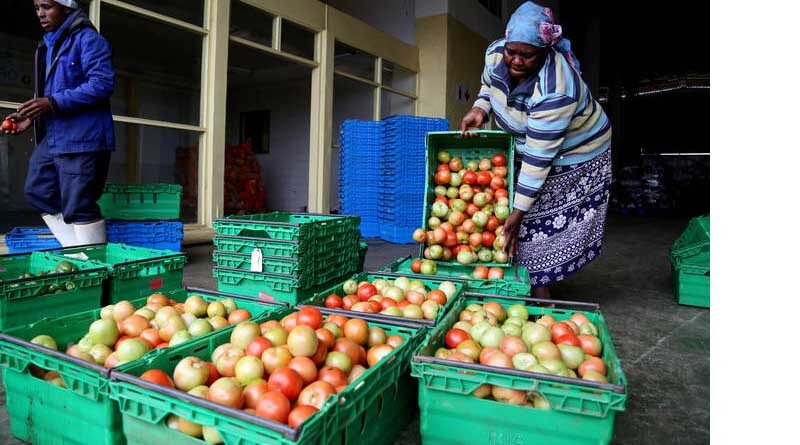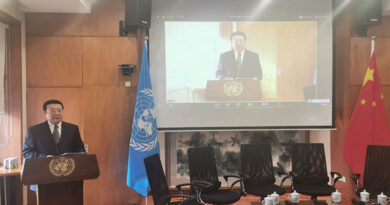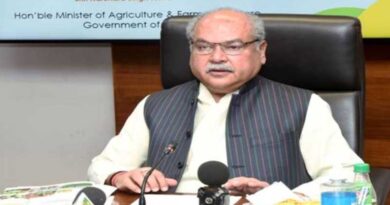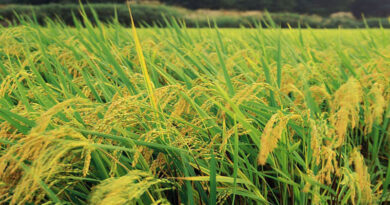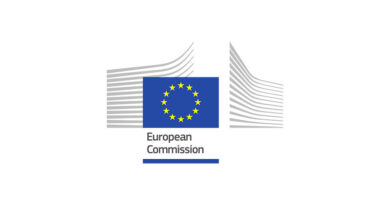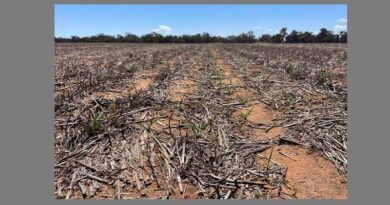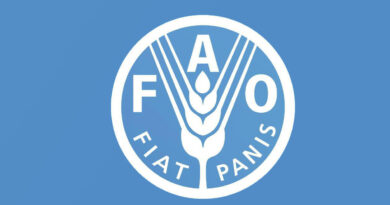FAO launches the UN’s International Year of Fruits and Vegetables 2021
15 December 2020, Rome: The Director-General of the Food and Agriculture Organization of the United Nations (FAO), QU Dongyu, today launched the International Year of Fruits and Vegetables 2021 (IYFV) with an appeal to improve healthy and sustainable food production through innovation and technology and to reduce food loss and waste.
Also Read: Vice Minister Zhang Taolin Addresses 6th Sino-German Agricultural Dialogue and Exchange
Proclaimed at the 74th session the UN General Assembly, IYFV 2021 is dedicated to raising awareness about the important role of fruits and vegetables in human nutrition, food security and health.
FAO, the lead agency for celebrating the International Year in collaboration with other United Nations bodies and partner organizations, launched it with an international virtual event.
Speaking at the event the FAO Director-General described the initiative as “a unique opportunity to raise global awareness”. He noted that the COVID-19 pandemic had challenged people to find new ways of fighting hunger and malnutrition and said IYFV would highlight the role of digital technologies in improving nutrition and market opportunities.
“In the current health crisis we are facing around the world, promoting healthy diets to strengthen our immune systems is especially appropriate,” Qu said.
While noting the challenges in improving production and agri-food chains, the FAO Director-General encouraged countries to see the International Year as an opportunity to improve infrastructure, farming practices thereby supporting small scale farmers. He emphasized fruits and vegetables were a good way for farmers to create cash crops.
In his message UN Secretary-General, António Guterres, called for a more “holistic approach” to nutrition and sustainability noting next year’s Food Systems Summit would also be an opportunity to consider the fragility of food systems.Chile played the lead role in developing IYFV and the country’s Minister for Agriculture, Antonio Walker, highlighted that the many challenges of promoting healthy eating habits require co-ordinated action to curb malnutrition.
Teresa Bellanova, Italy’s Minister of Agricultural, Food and Forestry Policies, said her country was ready to share its knowledge and experience in sustainable production as the country marked the 10th anniversary of UNESCO’s recognition of the Mediterranean diet as a cultural treasure.
Helena Leurent, the Director-General of Consumers International, which represents 200 consumer organizations around the world, said it was critical for consumers to have the right to a fair, safe and sustainable marketplace and to be actively involved in how it is shaped in the future.Fruits and vegetables are good sources of dietary fiber, vitamins and minerals and beneficial phytochemicals. FAO and the World Health Organization recommend that each adult consumes at least 400 grams of fruit and vegetables on a daily basis to prevent chronic diseases, such as cancer, diabetes, heart disease and obesity, as well as to counter micronutrient deficiencies.
With the COVID-19 pandemic the need to transform and rebalance the way our food is produced and consumed has only been further stressed.
The FAO Director-General noted that food loss and waste in the fruits and vegetables sector remains a problem with considerable consequences, and that “innovative technologies and approaches are of critical importance”, as “they can help maintaining safety and quality, increasing the shelf life of fresh produce items and preserving their high nutritional value”.
Food loss and waste reduction improves food security and nutrition, reduces greenhouse gas emissions, lowers pressure on water and land resources and can increase productivity and economic growth.
Up to 50 percent of fruits and vegetables produced in developing countries are lost in the supply chain between harvest and consumption.
Advocacy for fresh produce is consistent with the aim of strengthening the role of smallholder and family farmers, and fosters broader market options for millions of rural families. Gender equity opportunities are also noteworthy, as women often play leading roles for their households in both the production and consumption of fruit and vegetables.
The International Year of Fruits and Vegetables 2021 falls within the UN Decade of Action on Nutrition (2016-2025) and the UN Decade of Family Farming (UNDFF 2019-2028). These observances reinforce each other while providing greater visibility to small-scale producers and raise awareness on food security and nutrition.
FAO celebrated the first ever observance of the International Day of Awareness of Food Loss and Waste on 29 September 2020.

